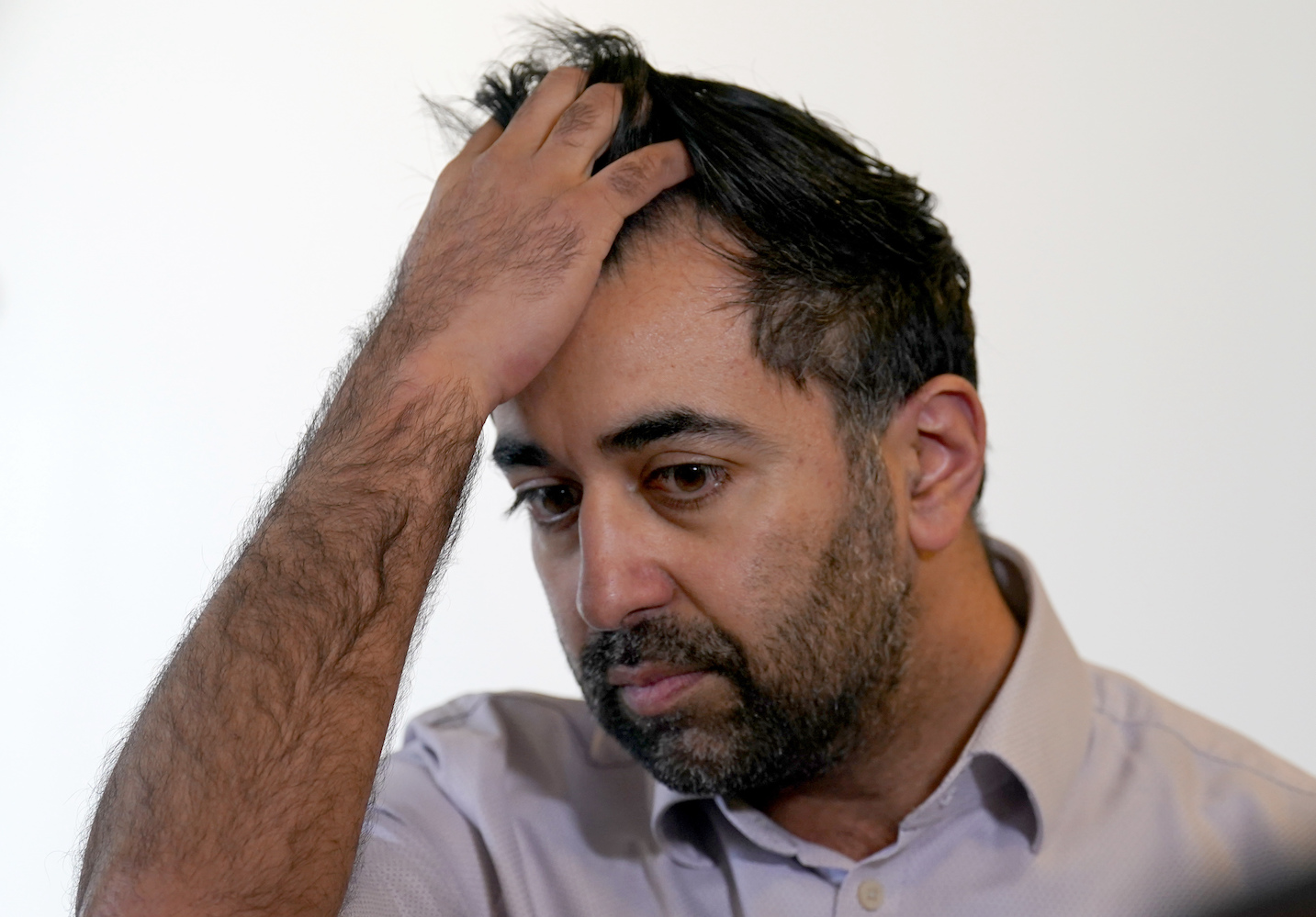Barely six weeks ago, Nicola Sturgeon sent shockwaves through the political system by announcing her resignation as first minister. An air of mystery surrounded the decision. Why, with the SNP so electorally impregnable, was now the time for such an abrupt departure? And why was there no obvious succession plan — one which mirrored the baton-passing when Sturgeon took over from Alex Salmond? On these points, the last month of yellow-on-yellow warfare has been singularly instructive.
By the end of her time as first minister, Sturgeon had become an accomplished illusionist. With the party grumbling and crackling in the background in late 2022, she pressed ahead with a series of measures which could inspire the visage of short-term unity.
In October, the first minister wrapped up the SNP’s conference with her legal team applying the finishing touches to their arguments for the Supreme Court showdown the next day. The mood in the conference hall was driven and optimistic — but the Court’s decision, delivered a month later, forced a rethink. Without the right to call a referendum at Holyrood, Sturgeon settled on “Plan B” and the SNP would run the next general election as a “de facto” referendum. Any objections would then be hashed out at a “special conference” on independence billed for March, buying the leader some time to tighten her arguments.
At every turn, the political theatre and sleight of hand feigned the impression of indy-momentum. Sturgeon assured activists: separation from the UK was in touching reach, disunity would fumble the precious Ming vase.


But under Sturgeon, independence was always within touching distance. The SNP’s 2015 election manifesto proposed that a referendum be held by the end of 2017. Then the goalposts were then shifted to a “common sense” vote in the autumn of 2018. Next a “referendum bill” was talked up which would have seen IndyRef2 held before the end of May 2021. And most recently, Sturgeon promised a referendum in late 2023, Supreme Court allowing.
Each goalpost shift, each schedule tinker exacted a heavy if imperceptible toll. With a tyranny of expectations burgeoning in party ranks, the de facto referendum plan was ultimately one strategical gambit too many.
The first minister’s abdication, therefore — styled out as a humble, Ardern-esque adieu — belied the mistakes, misjudgements and sheer fatigue within the SNP machine.
The shattering of the party’s internal norms during the leadership campaign was a consequence of the perceived misgivings of the ancien régime. The record-bashing of Ash Regan and Kate Forbes, aimed foremost at Humza Yousaf, had the intended effect of catching Nicola Sturgeon in the crossfire. That their candidacies amassed 40.7 per cent and 11.1 per cent of first preference votes respectively, underlines that there is a core constituency within the SNP membership want change.
Forbes even ran her campaign with the relatively clear commitment that she would remould the SNP’s social democratic profile as FM. Her vow to pursue “smaller, focussed government to … accelerate reform” amounted to a subtle to challenge of the ideological underpinnings of Sturgeonite rule. It served as an independence strategy too: liberal economic policy would widen independence’s appeal across Scotland’s classes and sectional interests, over time creating a sustained majority for the union’s dissolution.
Yousaf, on the other hand, was the unashamed “continuity candidate”. At the start of the race it meant he was well-positioned. Essentially by default he won the support of the largest proportion of the party’s MSPs and MPs. His victory on Monday will mean any breach with the norms of SNP rule will be slight at most.
Still, Yousaf faces mounting internal difficulties. In this way, that the soon-to-be-crowned first minister has said that he would seek the powers to hold another referendum “right away” is telling. The strategy is tried and tested: opt for a new strategical recourse on independence, stoke a separatist ferment and soften party discontent in turn.
But if it didn’t work for Sturgeon, why would it work for her “continuity” predecessor?
Of course, amping up the independence pitch is the obvious political incentive for Yousaf. That Monday’s split on second preferences was 52:48 between Yousaf and Forbes — an echo of the Brexit referendum — is deeply portentous for his political prospects. He needs to bind his party together once more.
The return of the ‘special conference’
Last week, the SNP was due to assemble in Edinburgh for its “special democracy conference” to discuss whether the SNP should go ahead and run the next election as a de facto referendum.
The assumption now is that Yousaf will announce a new date for the get-together. But after a bruising contest, it will reignite the debate within the party on independence strategy at a time when activists are demanding action. Yousaf sought to side-step the election-focussed indy strategy during the contest, but he nonetheless affirmed that as FM he would use “any means necessary” to achieve independence by 2028. The question remains: de facto referendum aside, what means are left for the party?
The conference, like the campaign itself, could hence prove a crippling conduit of party discontents. Tellingly, Ash Regan — who had the most radical position on the question of Scottish independence of the three candidates for the leadership — promised ominously yesterday “I’m only getting started”. Supported by the 11 per cent of first preferences, she will feel vindicated enough to take her view to the conference.
Yousaf’s overriding problem is totemic: how does he realistically act on his party’s expectations for independence with no obvious political pathway. He has promised to put the independence campaign into “fifth gear” but, as Nicola Sturgeon can attest, the cycle of expectation creation turn crippling climbdown is simply not sustainable. With Labour and the Conservatives smelling blood and internal cohesion broken, any sense that Yousaf is stalling could prove existential for the SNP.












